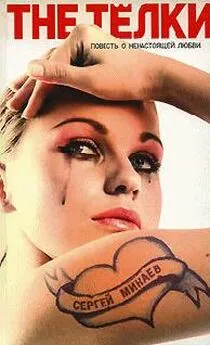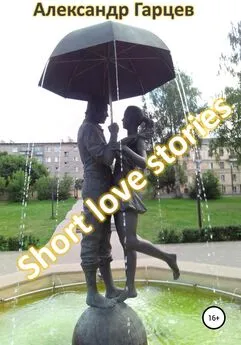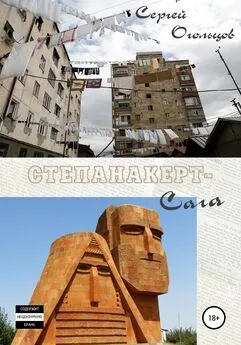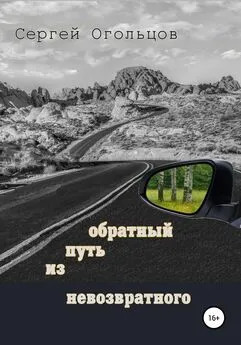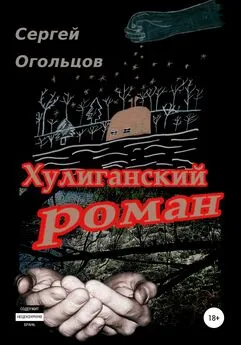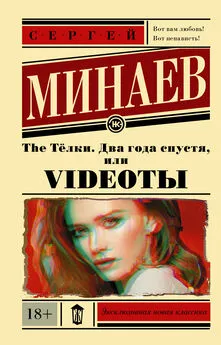Сергей Огольцов - The Rascally Romance (in a single helluva-long letter about a flicking-short life)
- Название:The Rascally Romance (in a single helluva-long letter about a flicking-short life)
- Автор:
- Жанр:
- Издательство:неизвестно
- Год:2022
- ISBN:нет данных
- Рейтинг:
- Избранное:Добавить в избранное
-
Отзывы:
-
Ваша оценка:
Сергей Огольцов - The Rascally Romance (in a single helluva-long letter about a flicking-short life) краткое содержание
Содержит нецензурную брань.
The Rascally Romance (in a single helluva-long letter about a flicking-short life) - читать онлайн бесплатно ознакомительный отрывок
Интервал:
Закладка:
(…for a long time I considered the Bandera men bloody bandits and Nazi accomplices. What else to think of them if a full-scale military division named “Galichina” was manned by Western Ukrainians to fight against the Red Army? Then, gradually, it dawned on me that two years before the German invasion it was the Red Army who occupied Western Ukraine and assisted the Soviet secret police, aka NKVD, in executions and deportation of potential opponents to the Soviet system. Killed just in case, as a preventive measure, in thousands.
Besides, what is a division when compared to an army? Among the German Wehrmacht’s comrades-in-arms, there also was the Russian Liberation Army (RLA) of almost one million servicemen fighting against the USSR.
And last but not least, the rank-and-file Red Army men, participants in the events of that period, let me know that the Bandera men fought fiercely against both Soviet and German troops. They were Carpathian guerrillas defending their land against successive liberators, aka enslavers.
Still, my parents all their life long considered the Bandera men savage bandits…)
And even two years later, when my mother again was in need of the help by maternity hospital, the dogged machine-gun rounds still rumbled on the slopes of the Carpathian Mountains, but she could not hear them anymore because her husband had been transferred from one “mailbox” to another and left the Transcarpathia for the Valdai Upland…
The change in the life circumstances of my parents resulted from a snitch-on letter sent to the Special Division of the previous “mailbox” from Konotop. It was composed by the people living in the same house with Galina Vakimova before her marriage.
The house (in Konotop parlance “khutta”) of 12 by 12 meters was a divided property, half of which belonged to citizen Ignat Pilluta. The other half was equally divided between citizen Katerinna Vakimova with her children and citizens Duzenko with their daughter, so each of the two mentioned families owned an entrance hall, a kitchen, and a room.
The daughter of citizens Duzenko married citizen Starikov who moved into her father’s part of the khutta . Seems, one kitchen and one room were not enough for all: both the young family and the in-laws. In order to increase their living space, Duzenko and Starikov learned the number of the mailbox where the demobilized Mariner took their former neighbor to and they composed their snitch-on letter for the box’s Special Division, whose foremost duty was catching spies, to inform SD that the father of Galina Vakimova (presently Ogoltsova) was arrested by the NKVD as people’s enemy but just before the war he somehow managed to return to Ukraine. Besides, during the years of German occupation, his house served the headquarters of the German troops. (Which was true in part, a Wehrmacht company headquarters was stationed in the Pilluta’s half of the khutta.) And with the approach of the Soviet Army, Joseph Vakimov fled together with the retreating fascists.
Special Divisions at “mailboxes” were notoriously vigilant and merciless, so the relatives of Joseph, who disappeared in so treacherous anti-Soviet way, would certainly be arrested and—the informers were quite sure—at least, deported. Too bad, in their logical calculations or, sooner, aping a commonplace trick of the period, they neglected the time factor. By that moment Great Leader and Teacher of Peoples, Comrade Stalin, rested in peace already. The nuts tightened under his rule to the utmost started to gradually let up.
Of course, Nikolai Ogoltsoff was repeatedly called and questioned in SD of the “mailbox”. There took place an exchange of official correspondence between the box’s Special Division and the Division of Interior Affairs of the city of Konotop. However, my father was not repressed thanks to his absolutely peasant origin, as well as to the fact that diesel engines generating electricity in “mailboxes” obeyed him so willingly. Still and all, there was no way to simply blink at the informants' “signal” and, just in case, they transferred my father to another “mailbox”, located far from borders with foreign countries…
The second lying-in of Galina Ogoltsova occurred again outside the new “box”, in the nearest, not secret district center.
(…it seems that the maternity hospital or, rather, its absence was the Achilles’ heel of the then “mailboxes”…)
On arrival to the maternity hospital out there, she was denied admittance because they took her for a Gypsy on account of her black hair and the dressing gown of large printed flowers. Suspiciously flashy, too red. Yet escorting her her husband emphatically condemned so erroneous assumption, his zealous attestation brought about change in the attitude of the segregationist nurses and they let her in for the labors at hand. An hour and a half later my father was told that his wife had born a girl, and five minutes later they heralded arrival of a boy baby. The news triggered a blissful yell by our father, “Switch off the lamp in the deliv'ry room! It’s to the light them babies scramble!.”
~ ~ ~
History, be it of a private person, or a developed nation, boils down to just two parts of which the first comes history immemorial, presented in loose legends, hazy myths, and dubious traditions; the latter, on the contrary, embraces stark facts caught, tagged, logged, and anchored to a certain calendar, preserved in the public chronicles of some kind, or in the personal memory, in case of a separate individual…
All the children of my parents were fascinated when Mom and Dad got into the mood for sharing the family lore about the deeds and adventures of the eager listeners at the times beyond their infant memories.
About how the first-born started toddling, for example, at the railway station on departure from the Carpathians to the Valdai. At the following train stops my father took me out onto the station platforms to consolidate my skills in feeble walking because the wobbly floor of the rolling car did not favor such hoopla…
At the new place, the family was allocated a timber house where they let me go for independent walks in the yard bounded by a fence of slender planks. My mother was greatly perplexed at my looks, mired as a piglet, on my returns from the yard. Where could I possibly find any dirt in so tiny and orderly corral? Changing me into clean once again, she asked my father to crack the enigma. So what he sees keeping the door open for a tiny crack to peek after the mud-lover? No idle roaming nor hesitation, the kid at once takes a beeline route to the fence plank in the corner fixed by just one—upper—nail, pushes the deal aside and off he goes! In the street, the boy busily scrambles atop the hillock of sand dumped for the construction of another house. Up there he plops on his tummy and slides down the sand slant drenched by the recent rains. A merry-go-happy laughter joins the ride. Could you manage washing things for that cheeky villain?.
While my mother was changing me over again, my father took a hammer, stepped out and nailed the dangling plank in place. Then he came back and together with my mother watched: now what?
The kid walked to the usual place and pushed the plank. It didn’t stir. Neither did the planks on both sides from it. The railed in child went along the fence, twice, checking each of the planks then he stood still and burst into tears…. My memory retained neither timber house nor its yard, but at this point in the parents’ narration, I felt the emphatic tears welling up in my eyes. Oboy , poor captive!.
And from another legend, the paw of horror ran up my bristled hair before to pierce the back of my neck by the grasp of its point-sharp talons because my mother grew suddenly anxious that I was nowhere around and for quite a stretch too, so she sent my father to look for me. He went into the yard then in the street—not a sight of me anywhere and no neighbor had seen me at all but it was getting dark already.
Dad walked the street again, from one end to the other, and then he paid attention to the rumbling noise of the river. He hurried to the steep, almost vertical, slope under which the river, swollen after the rains, rolled angrily on. And there, far down, he made out his son. Run, Daddy, run!.
The torrent of muddy water had engulfed the narrow strip of the bank under the cliff-like drop-off. He had to race knee-deep in the water.
The boy in a tight clench to the wall of clay, a tuft of withered grass in his pinch, his feet under the rushing torrent. He does not even cry already and only whimpers, “uhu-uhu..”
Dad wrapped him in his jacket and hardly managed to find a spot he could climb out without helping himself with his both hands…
And how proudly fluttered the wings of my nose at the story that it was me christened my brother and sister!
Since I was named after my father’s brother, the names of my mother’s siblings were readied for the twins that came next. In the maternity hospital, they were addressed just so—Vadik and Lyoudochka. However, when the babies were brought home and the parents asked me what we would call them, my immediate response was, “Sassa-’n’-Tattassa.” And no fast-talk could convince me to change my mind.
That’s how my brother became “Alexander” and my sister was called “Natalia”.
~ ~ ~ ~ ~
~ ~ ~The Childhood
The very first notch to sum up my legendary past and start recording in my memory my life events by means of my personal recollections was scratched by the raw morning sun whose glare made me squint and turn my face sideways atop a small grassy mound upon which Mom had pulled me. There we stood, hand in hand, giving way to a black crowd of men marching across our route to kindergarten.
From their advancing mass, they saluted me with cheerful ‘hellos’. My hand raised up didn’t wave back grasped by Mom’s palm, still I felt big, pleased, and proud that my name's so popular among the adult convict- zeks . I never realized then that the amiable attention of zeks on their march sprung from the presence of so young and good-looking mother…
Those zeks were constructing 2 blocks of two-story buildings upon the Gorka upland and after the first block was accomplished, our large family moved into a two-room flat in the uppermost, second, floor in a house of eight-apartments.
All in all, our Block comprised six two-story houses alongside the perimeter of a vast rectangular courtyard. All of the six houses were entered from the courtyard, four longer cranked buildings bounded its corners and had three entrances each, while each of the 2 shorter houses, inserted in 2 opposite sides, had only one. However, it was the presence of those shorties that made rectangular of a mere square. The road of hard concrete ran around Block and its twin under construction both uniting and separating them like loops in 8 or, maybe, ∞.
Allowed to play out, I often left the empty childless Courtyard and crossed the road to get to the block under construction. Zeks working there never discouraged my visiting the site and at the midday breaks they treated me to their balanda soup. The speedy buildup of a stock of expressive embellishments to my—otherwise babyish—talk soon made my parents aware of who were my current gossip milieu and they posthaste entered me to kindergarten.
The Gorka upland, most elevated part in the Object, shared its name to the two blocks atop of it. On all the four across the loop road around the blocks there grew the forest but no tree could ever make it over the concrete in the roadway… When the second of the Gorka blocks was completed, zeks disappeared altogether and all the subsequent construction works at the Object (people around preferred this name to “Mailbox”) were performed by soldiers with black shoulder straps in their uniform, blackstrappers. Apart from them, there also were redstrapper soldiers at the Object but as for their mission there I am not sure up to now…
Читать дальшеИнтервал:
Закладка:


